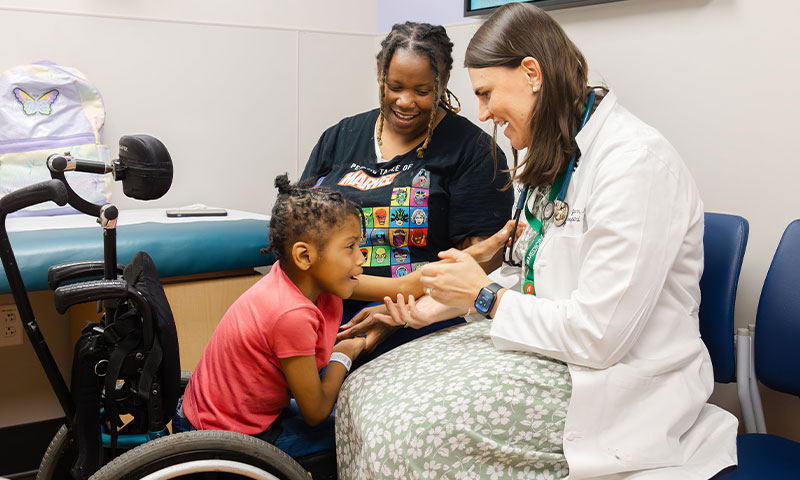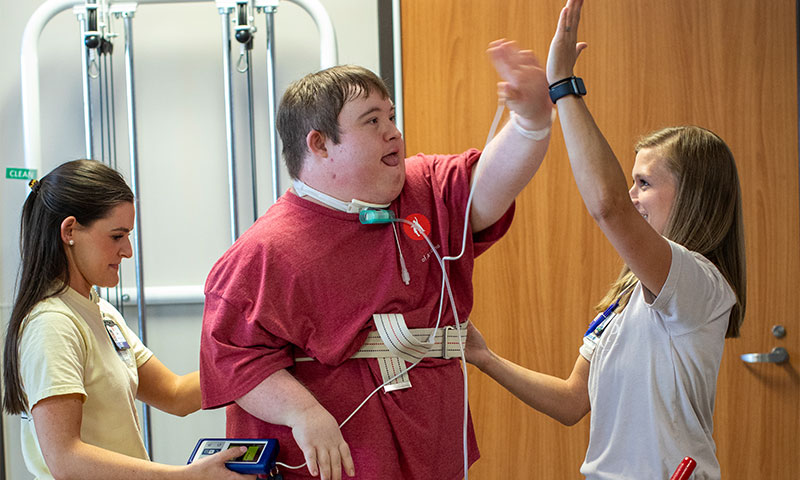


A much-needed bridge between inpatient and outpatient care for adolescents facing mental health challenges arrived at Children’s of Alabama in 2020 in the form of the Partial Hospitalization Program (PHP). This program offers more intense treatment than typical outpatient structure provides and encourages success in symptom management and recovery. Following increased demand for the program in the wake of the COVID-19 pandemic, Children’s has now launched an Intensive Outpatient Program (IOP), an extension of the PHP, designed to better help these young patients adapt to daily life.
Just as the PHP was created to fill the gap between inpatient and outpatient services, the IOP is meant to help these young patients make another crucial step—back to normal living.
The IOP, which opened in August 2024, serves adolescents ages 12 to 18 and runs three hours a day, three days a week—a deliberate step back from the PHP’s five-day, six-hours-daily structure. The less-frequent, less-intensive schedule is its main distinction from the PHP. But both programs have the same staff support, including psychiatrists, nurses and other mental health clinicians, Byrd says. The IOP also coordinates a variety of community resources for patients and families that help adolescents build a comprehensive support network to enhance treatment outcomes.
To learn more about the clinic, click here.

Children with medical complexity (CMC) suffer from chronic, fragile conditions, functional limitations and frequent dependence upon medical devices. These children often face significant health management challenges, including high hospitalization rates, complex medical needs and fragmented care. In response, the UAB Department of Pediatrics and Children’s of Alabama created the joint Pediatric Complex Care (Teal) Program, a comprehensive initiative aimed at providing compassionate, coordinated and continuous care for these children both in and out of the hospital.
The Complex Care Program’s inpatient team, known as the Teal Team, is part of UAB’s Pediatric Hospital Medicine division. Since its inception in October 2023, the team has cared for more than 160 children. The multidisciplinary team is comprised of physicians, nurse practitioners, pharmacists, nutritionists, case managers and social workers, all working together to provide comprehensive care for children during their hospital stays. At the heart of the Teal Program are four core values: Teamwork, Empathy, Access, and Longitudinal Care.
For more information on the Complex Care Team, click here.

Not very long ago, in the early 1980s, people with Down syndrome were not expected to live past 25. Today that number is up to 60 years old. But the extra years come with questions that few doctors or parents know how to answer.
For instance, many of the relatively small number of people with Down syndrome who have lived to age 40 have developed dementia and other Alzheimer’s-like symptoms by then. But the medications doctors use to treat Alzheimer’s are not approved for people this young.
“We hear from parents that this is the thing they worry about the most,” said Snehal Khatri, M.D., associate professor in the Division of Developmental and Behavioral Pediatrics, and medical director of UAB Sparks Pediatrics. With a grant from UAB’s HSF-GEF program, Khatri and Betsy Hopson, director of the UAB Staging Transition for Every Patient Program in the Division of General Internal Medicine, will create a new clinic to focus on care for people with Down syndrome across the lifespan.
To learn more about the clinic, click here.